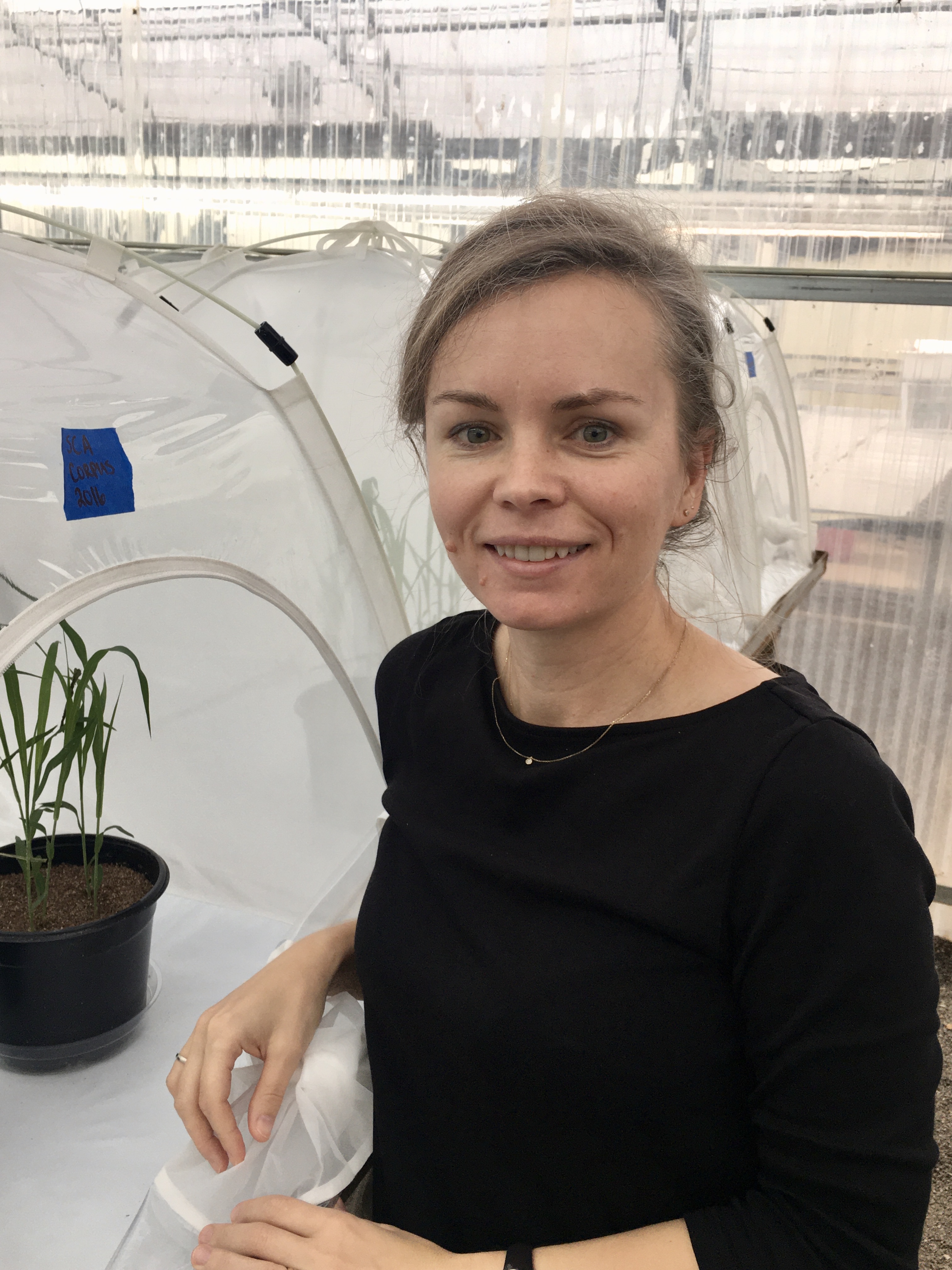Section Symposium
Plant-Insect Ecosystems
Bodyguards for Plants: Integrating Indirect Defense into Plant Breeding and Pest Management
The scent of impending doom: Induction of genes involved in indirect plant defenses and implications for pest management
Sunday, November 5, 2023
3:30 PM - 3:55 PM ET
Location: Gaylord National Resort & Convention Center, Chesapeake G-H

Adrianna Szczepaniec
Associate Professor
Colorado State University
Fort Collins, Colorado- ME
Micky Eubanks
Texas A&M University
College Station, Texas - MK
Mahnaz Kiani
Texas A&M University
College Station, Texas
Presenting Author(s)
Co-author(s)
Indirect plant defenses are plant traits that increase the abundance and/or effectiveness of natural enemies and thereby indirectly reduce herbivory. Most studies of indirect defenses have focused on chewing herbivores (e.g., caterpillars) or spider mites, even though phloem-feeding herbivores like aphids are associated with an abundant and rich natural enemy complex. The goal of our work was to explore whether strong induction of direct defenses was linked to enhanced expression of indirect defenses in sorghum lines tolerant to an invasive aphid, Melanaphis sacchari that devastated sorghum production in the U.S. in the last decade. We explored whether aphid infestations affected expression of genes involved in indirect defenses, altered volatile biosynthesis and predator attraction to infested plants. Further, we employed network analysis to link gene expression to predator recruitment in the field. We found a strong correlation between induction of genes involved in direct and indirect defenses, reduced aphid densities, and increased predator recruitment to
aphid-infested sorghum. Our outcomes provide strong evidence that indirect defenses play an important yet highly overlooked role in pest suppression.
aphid-infested sorghum. Our outcomes provide strong evidence that indirect defenses play an important yet highly overlooked role in pest suppression.

.png)
